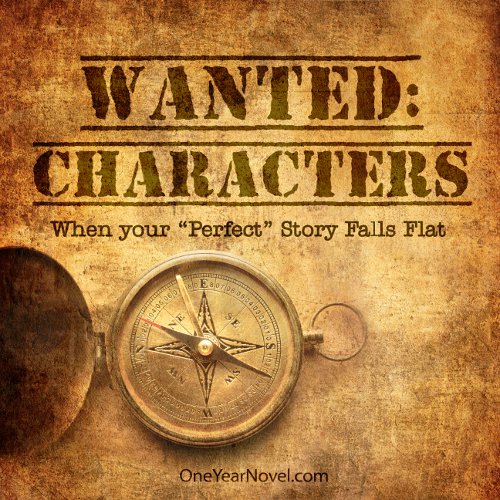When Your “Perfect” Story Falls Flat
Daniel Schwabauer
This is part 2 of a miniseries, Shadow Writing, telling “the story of a story”: my work-in-progress, a swordpunk novel. You may want to read Part 1 first.
 Shadow Writing, Part 2
Shadow Writing, Part 2
I know when I’m beaten. The morning I met my wife, for instance. (Complete surrender.) Or the moment my daughter was born. (She defeated me without speaking a word.)
Less spectacularly, but more to the point, the day I realized that the 100,000-word YA sci-fi novel I had written not only didn’t work, but would never work no matter how much time I threw at it. It lacked a clear premise, and I didn’t have the passion to keep chasing it. I tossed it aside and have not picked it up since.
But my other book, my book of shadows, the one which has refused both a glorious victory and an honorable death, is another matter entirely. That book represents a battle still in doubt.
I’ll skip the history of my story idea, explained in my previous post, to the day I came home and found the fourth iteration of my novel waiting for me when I returned from church. It lay silently in the doorway of my mind like a lamb napping on a sacrificial altar. Version four didn’t want to die; it wanted its heart cut out. It wanted to be reborn as something else.
I had re-written the novel, then titled Baht, in 2012, as 70,000+ words of first-person narrative. Only in writing the second-to-last chapter did I realize the book wasn’t working. Though it had a lot going for it (in my opinion, anyway), it still lacked something. It lacked oomph. Drive. A sense of compulsion. I wasn’t being pulled along by the story; I was driving the story ahead of me with a cattle-prod.
The cause of my failure eluded me for months. I thought that I had a great setting, an interesting theme, a compelling plot, and an idea for something that might generously be called a new (albeit minor) genre. I even had not one, but two twist endings that would simultaneously resolve the main plot and a sub-plot while demonstrating the theme. What more did a story need?
You’ve probably spotted the problem already, thus illustrating the point that it is possible to be so close to the answer that you can’t see it.
My story lacked characters. Oh, it had people. Some of them even had some semblance of personality. But none of them were real. They were all doing exactly what I told them to do. None of them ever surprised me, except one character who died two pages after her introduction.
In January of 2013 I realized I was missing one of the most elementary story principles. Every story must center around the right people. I had begun the book in first-person point of view (FPPOV), something that seemed to work well in The Curse of the Seer. But the limitations of FPPOV in this case weren’t serving the story. First person was killing it.
My protagonist couldn’t see enough of my world to demonstrate the novel’s theme or reveal the larger design and meaning of the story.
Worse still, I had picked a terrible narrator. What made me think I could write a story set in a vast new world with a controversial theme and a complicated, multi-faceted story arc using the narrative equivalent of a soda cracker?
The truth hit me with the embarrassing awkwardness of a public fall down the stairs: my hero sounded exactly like me. He was boring.
The good thing about falling down stairs of course is that you do end up where you were headed, and sometimes very quickly.
In this case I sat down and began to type the story from the eyes of the various two-dimensional characters who inhabited Baht. But this time I gave them permission to tell the story not as I saw it, but as they saw it. Who are you? I asked each of them, and what do you want? Why does this story matter in your corner of Rhega? Why is your life important?
The flood of words that erupted onto my computer screen shocked me. Seven point-of-view characters answered, each in a unique voice, each revealing aspects of their world, their culture, and the novel’s theme, that had never occurred to me before. Thousands of words arranged in huge chunks of description, bits of dialogue, lists, charts, even references. Even my fictional world spoke to me, though not as a point-of-view character, but as a place of character, a place demanding to be seen in more detail.
I now had thousands of words of background material and a new understanding of my story. I also had a new title: In the Shadow of the Wise.
All I lacked was time to write it. Ah, well. At least I had something to show for my fourth draft. At least I had a new North to navigate to.
Plus, I had gained another hard lesson in the craft of writing, (something I thought I had learned long ago): You need characters for a book. And the characters should fit the book. Surely they should be capable of changing their lives, their world, and even their story. Otherwise they are unworthy of your time.
If you ever find that your hero sounds exactly like yourself having an adventure, you are probably not writing a story; you are writing a daydream.
The main thing any character in a novel needs to be is not you.
To be continued in Part 3



This is awesome, Mr. S! Thanks so much for sharing your own struggles! From all I’ve read about it, I’m very curious about In the Shadow of the Wise, and I wish you the greatest success with it. This is such an excellent reminder of the need for characters. I know my OYAN novel’s heroine resembled me greatly, and I’m happy to find that my current project’s characters are a little better developed. But I’m very encouraged by this post. Even the best sometimes make mistakes. 😉 Thanks!
Not sure I count as “the best,” but I appreciate the support! Thank you.
Well, I learned a lot from OYAN, so I have to consider you one of the best. 🙂 You’re welcome!
What a great blog post. 🙂 Thank you for sharing your difficulties.
Gah. Mr S, thank you so much for taking the time and opening up to us like this. I’ve been struggling with apathy towards any of my writing for a while now, and this was really encouraging. Maybe my problem is I’ve been looking at my story ideas, and none of them are interesting me. Maybe I need to look at the characters first, and see what their story is. I don’t know. I’m rambling now, sorry. But thank you very much for this.
You’re very welcome. 🙂
Wow … thank you so much for this post, Mr. S.
I have really been struggling with the second draft of my third novel, and now I have hope that I can fix it. 🙂 Thank you so much.
And also, thanks for pointing out that “The main thing any character in a novel needs to be is not you.”
Because, almost all my main characters are like me. I am working very hard on turing that around. 🙂
You have really encouraged me through this post and I thank you for sharing your heart like this.
~Heidi
Ahh I think this might be a problem of mine too, my MC is possibly too similar to me.
Great post, Thanks!
This is exactly what I’m dealing with right now! Several of my characters sound like me and are … boring. 🙁
Thank you for the post and for sharing your advice and experience, Mr. S. 🙂